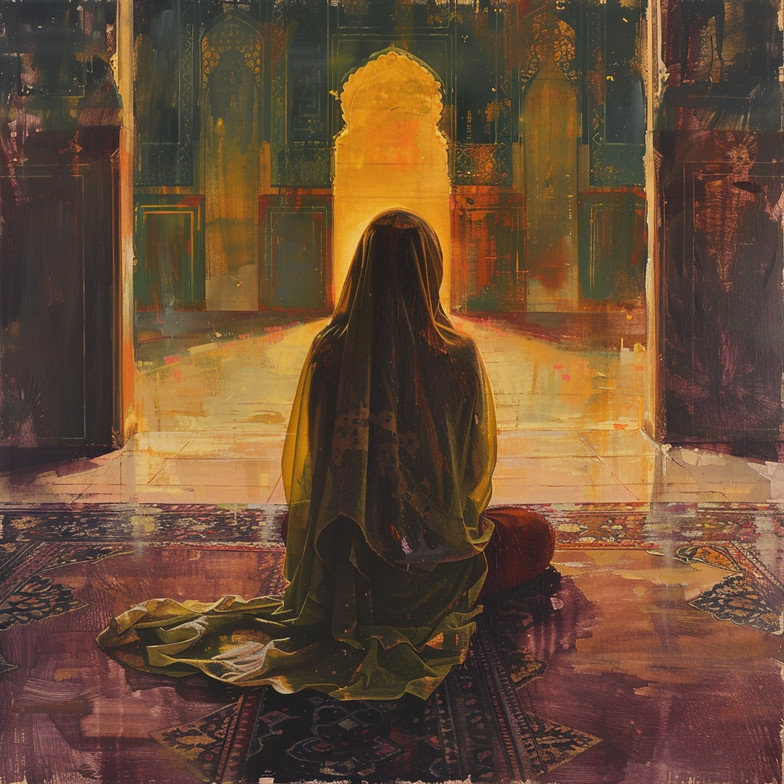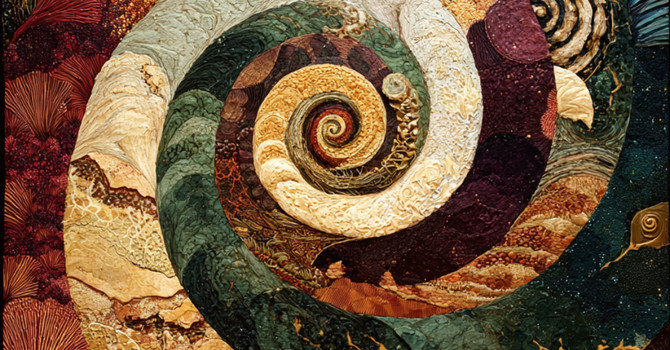
Salah: The Most Perfect Holistic Practice for Mind, Body, and Soul by Erum Qureshi, DNP, APRN
In our time, the concept of holistic health; caring for the mind, body, and soul together - has become increasingly popular. Many turn to practices like yoga, meditation, or breathwork to find balance and healing. As a holistic health practitioner and a Muslim, I am often asked: “Is yoga good for us?”
My answer is: yes, yoga can be a beneficial physical exercise and a calming mental practice. It is an ancient and beautiful tradition that helps many feel grounded, centered, and connected. But we must also acknowledge the reality: yoga is rooted in a spiritual philosophy of its own, distinct from Islam. While we can benefit from its physical aspects, it is not the most perfect path for spiritual alignment and healing for a believer.
The Prophet Muhammad (sallallahu 'alayhi wa sallam) was sent to perfect good character and complete the religion.
Just as his mission was to perfect faith, worship, and human conduct, the spiritual practices he taught are also perfect - complete in their ability to connect, heal, and elevate us in every dimension. Among these, Salah (the five daily prayers) stands as the most comprehensive holistic practice ever prescribed.
Why Salah Surpasses All Other Practices
Where yoga seeks to unite body and mind, Salah unites body, mind, and soul in divine presence. It is not merely a sequence of postures - it is divinely designed movement, breath, intention, and remembrance. Each position - standing, bowing, prostrating, and sitting - has both physical and spiritual benefits.
Physically, it stimulates circulation, gently stretches the muscles, aids digestion, and strengthens the spine and joints.
Mentally, it centers the mind, breaks cycles of stress, and promotes mindfulness.
Emotionally, it grounds us in gratitude, humility, and peace.
Spiritually, it connects us to the Source of all healing - Allah.
Healing comes only from Allah. Without invoking Him, there can be no lasting or true healing. Our bodies are governed by multiple faculties - the physical, mental, emotional, and energetic—but the ultimate faculty is the Ruh (soul). The Ruh is sustained and nourished through divine connection, and that connection is maintained through Salah.
Yet Salah is not only remembrance - it is a living dialogue with Allah. Every verse recited, every whisper of dhikr, is a conversation with the Lord of the worlds. This sacred exchange turns Salah into a transition into another realm of reality - a realm that is both a mystery and an undeniable truth.
In this state of divine presence, the human being steps beyond the limitations of the material world and enters space where everything happens:
· Worries are lifted,
· Needs are fulfilled,
· Demands are met,
· And the soul is nourished.
Breath, Energy, and the Ruh
In every breath, we are given life, energy, and sustenance. Our breath feeds the heart, the nervous system, and the brain. But when we pair our breath with the remembrance of Allah...breathing slowly, pronouncing the words of prayer with awareness -
our Salah becomes a source of spiritual energy that flows into every cell and organ.
Without Salah, we deplete the body of its ultimate medicine. Just as yoga requires consistent practice to master, so does
Salah.
A Word on Yoga
So go ahead and use yoga as a beautiful form of exercise to stretch your body, synchronize your breathing and movement, and even calm your mind, but only to return to your Salah with a stronger connection and deeper presence, because this is where true healing lies.
The challenge is that most of us perform our Salah as if it’s just a duty to check off: four rak‘ahs and we’re out. Yet we’re willing to spend an hour in the gym or on a yoga mat without hesitation.
The Prophet Muhammad (peace be upon him), in his Tahajjud prayers, would recite Surah Al-Baqarah and more in a single standing. Imagine how long his body was in different postures: stretching and stimulating muscles, improving blood flow, and aligning his mind and spirit. This shows us that Salah is inherently a physical, mental, and spiritual discipline far beyond what we tend to experience in our hurried daily prayers.
We must learn to use our Salah as holistically as it was designed, so we can reap its full benefits - not just as a ritual, but as a complete mind-body-soul healing practice.
Salat al-Tasbih: A Perfect Tool to Deepen Salah
Salat al-Tasbih is a unique prayer designed to immerse you in the remembrance of Allah and cleanse you of sins - past and
future, small and great, hidden and open.
The Prophet (peace be upon him) said to his uncle al-‘Abbas:
“O Abbas, shall I not give you, present to you, grant to you, do mercy to you? When you do this, Allah will forgive you
your sins - the first and the last, the old and the new, the intentional and the unintentional, the small and the large,
the secret and the open - ten kinds of sins. You pray four rak‘ahs…”
(Abu Dawud 1297, Ibn Majah 1387, al-Bayhaqi 1217 – accepted by many scholars for its virtues)
How to Perform Salat al-Tasbih (Simplified)
- Four rak‘ahs (units of prayer)
- You will recite this Tasbih 300 times: “Subhanallahi wal-hamdu lillahi wa la ilaha illallahu wallahu akbar” (Glory be to Allah, praise be to Allah, there is no god but Allah, and Allah is the Greatest.)
In each rak‘ah:
1. After Subhanaka Allahumma (before Al-Fatihah) – 15 times
2. After surah recitation – 10 times
3. In ruku‘ – 10 times
4. Standing after ruku‘ – 10 times
5. In the first sujood – 10 times
6. Sitting between sujoods – 10 times
7. In the second sujood – 10 times
That’s 75 tasbih per rak‘ah × 4 rak‘ahs = 300 times.
Turning Salah into the Ultimate Healing Practice
If you want your Salah to nourish you like no other practice can:
- Slow it down. Avoid rushing; breathe with every phrase.
- Be present. Let your thoughts settle and your awareness rest in the moment.
- Engage your heart. Speak to Allah with sincerity, as if you see Him.
- Use Salat al-Tasbih as a training tool for mindfulness in prayer.
Final Reflection
Yoga, breathwork, and other mindfulness practices can offer temporary calm and improved flexibility - but their origins and aims are different from what Allah has prescribed for us. Salah is not just a ritual...it is a living, breathing medicine for the soul and a complete holistic therapy for the believer.
If practiced with mindfulness, humility, and love, Salah aligns the body, purifies the heart, focuses the mind, and elevates the soul to the highest station of peace and nearness to Allah.
Healing flows from the One who created you, and Salah is your direct connection to Him.
I also have a full presentation on The Art of Being Present in Prayer available for purchase through Forward to Health's Hikma Academy. Feel free to check it out.
The Art of Being Present in Prayer



